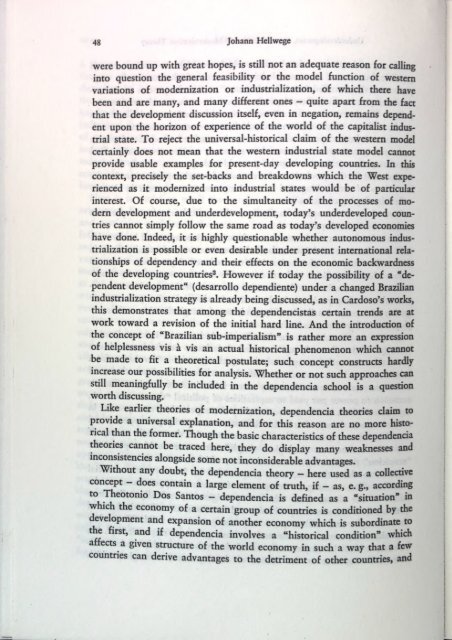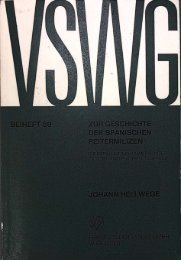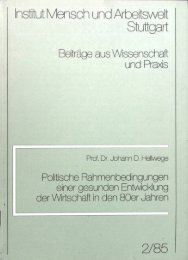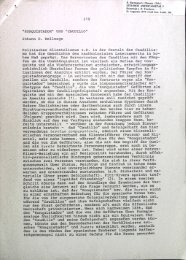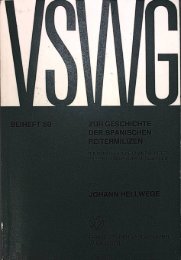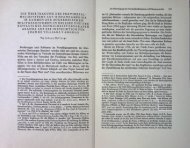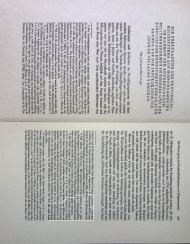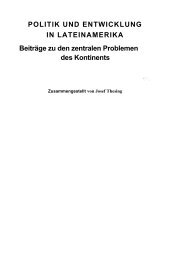9_Law and State_Volume 17
You also want an ePaper? Increase the reach of your titles
YUMPU automatically turns print PDFs into web optimized ePapers that Google loves.
48 Johann Hellwege<br />
were bound up with great hopes, is still not an adequate reason for calling<br />
into question the general feasibility or the model function of western<br />
variations of modernization or industrialization, of which there have<br />
been <strong>and</strong> are many, <strong>and</strong> many different ones - quite apart from the fact<br />
that the development discussion itself, even in negation, remains dependent<br />
upon the horizon of experience of the world of the capitalist industrial<br />
state. To reject the universal-historical claim of the western model<br />
certainly does not mean that the western industrial state model cannot<br />
provide usable examples for present-day developing countries. In this<br />
context, precisely the set-backs <strong>and</strong> breakdowns which the West experienced<br />
as it modernized into industrial states would be of particular<br />
interest. Of course, due to the simultaneity of the processes of modern<br />
development <strong>and</strong> underdevelopment, today’s underdeveloped countries<br />
cannot simply follow the same road as today’s developed economies<br />
have done. Indeed, it is highly questionable whether autonomous industrialization<br />
is possible or even desirable under present international relationships<br />
of dependency <strong>and</strong> their effects on the economic backwardness<br />
of the developing countries3. However if today the possibility of a “dependent<br />
development“ (desarrollo dependiente) under a changed Brazilian<br />
industrialization strategy is already being discussed, as in Cardoso’s works,<br />
this demonstrates that among the dependencistas certain trends are at<br />
work toward a revision of the initial hard line. And the introduction of<br />
the concept of “Brazilian sub-imperialism” is rather more an expression<br />
of helplessness vis 4 vis an actual historical phenomenon which cannot<br />
be made to fit a theoretical postulate; such concept constructs hardly<br />
increase our possibilities for analysis. Whether or not such approaches can<br />
still meaningfully be included in the dependencia school is a question<br />
worth discussing.<br />
Like earlier theories of modernization, dependencia theories claim to<br />
provide a universal explanation, <strong>and</strong> for this reason are no more historical<br />
than the former. Though the basic characteristics of these dependencia<br />
theories cannot be traced here, they do display many weaknesses <strong>and</strong><br />
inconsistencies alongside some not inconsiderable advantages.<br />
Without any doubt, the dependencia theory —here used as a collective<br />
concept - does contain a large element of truth, if - as, e. g., according<br />
to Theotonio Dos Santos — dependencia is defined as a “situation” in<br />
which the economy of a certain group of countries is conditioned by the<br />
development <strong>and</strong> expansion of another economy which is subordinate to<br />
t e first, <strong>and</strong> if dependencia involves a “historical condition” which<br />
a ects a given structure of the world economy in such a way that a few<br />
countries can derive advantages to the detriment of other countries, <strong>and</strong>


